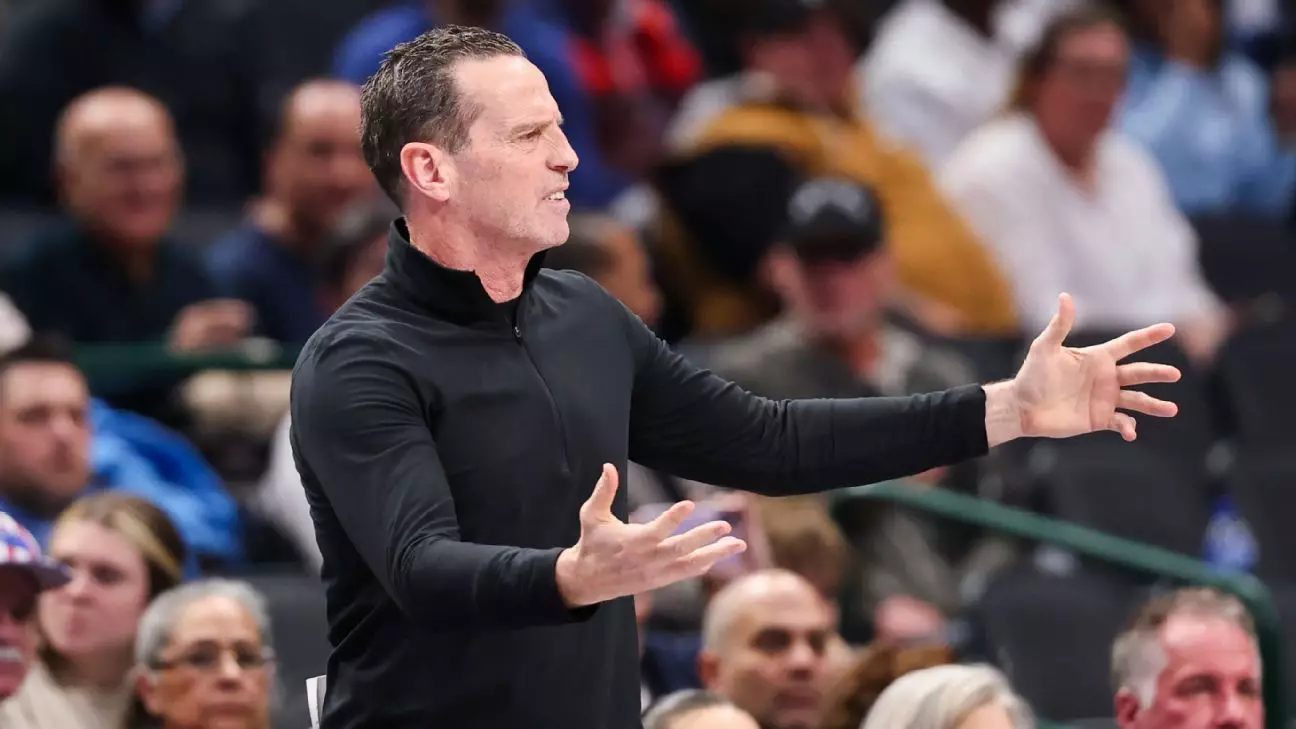In the highly charged atmosphere of playoff basketball, emotions ran high as the Cleveland Cavaliers fell to the Indiana Pacers in a heart-stopping 120-119 confrontation during Game 2 of the Eastern Conference semifinals. The clash was not simply a contest of skill but a vivid tapestry woven with tension, strategy, and human error. At the heart of the discussion post-game was a series of contentious non-calls by the officials in the dying minutes—a topic that always seems to ignite fervor among coaches, players, and fans alike.
Cavaliers head coach Kenny Atkinson, fresh from being crowned the NBA’s Coach of the Year, navigated the swirling controversy with remarkable diplomacy. Instead of parsing blame onto the officials for missed calls, including lane violations that led to Tyrese Haliburton’s pivotal 3-pointer, Atkinson shifted the narrative towards his own team’s performance. This approach underscores a vital lesson in leadership: rather than pointing fingers at external factors, the most effective response often lies in self-reflection and accountability.
Missed Calls and Their Consequences
The NBA’s “Last Two Minute Report,” a mechanism designed to provide transparency and accountability, highlighted three significant errors. The report indicated that Haliburton’s winning shot was preceded by a lane violation as he stepped into the key prematurely during a missed free throw. More intriguingly, multiple players encroached on the lane, highlighting a more systemic issue that transcends individual blame.
Atkinson’s understanding of the broader picture—forging beyond just the foul calls—speaks to a strategic mindset essential for success. His acknowledgment that the Cavaliers squandered a 20-point lead makes it clear that when analyzing losses, one must consider all elements involved. Every decision, from coaching strategies to player execution, contributes to the final outcome. This is not merely about pointing out officiating mistakes; rather, it’s about analyzing a game as a collective effort.
Lessons from Defeat
As the Cavs grappled with feelings of frustration over the last-second dynamics, Atkinson’s reflections serve as a larger commentary on resilience and growth. “Recency bias” plays a formidable role in how teams and fans perceive the flow of a game, often distorting what is remembered in favor of the dramatic conclusion. Atkinson’s refusal to let the last-minute transgressions cloud the broader scope of the game is commendable and needs to be embraced widely.
Furthermore, assessing the performance of the entire game is crucial. The ability of the Pacers to score eight points within the final 47.9 seconds showcases their relentless determination—a lesson that complacency can easily slip into any lead, no matter how significant. This resonates particularly in high-stakes settings where pressure has a unique way of bringing forth both the best and worst in individuals.
The Role of Communication
Communication, as displayed by both coaches and players during this nail-biting encounter, proved foundational. Coach Rick Carlisle’s commentary, contrasting his team’s foul count against Cleveland’s, illustrates a key aspect of sportsmanship and respect within competition. Despite the disagreements over officiating, Carlisle emphasized not expecting leniency from referees, indicating a robust mindset that prioritizes earning every point.
This perception of communication extends beyond verbal exchanges and into the very fabric of gameplay. Successful teams foster an environment where players are keenly aware of not just their actions but also the implications of those actions within the larger context of the game. Understanding the dynamics of both one’s team and the opposition can dramatically influence decisions on the court, optimizing performance even amid high-pressure situations.
Looking Towards the Future
As the series progresses to Indiana for Game 3, anticipation mounts—along with the stakes. The lessons learned in Indianapolis will be critical for both squads as they refine their strategies and prepare for the increasing intensity that playoff atmospheres entail. One thing remains clear: while controversies over officiating may serve as hot topics, the true essence of sports lies in the competition, adaptation, and growth that arises from every win or loss. The Cavaliers and Pacers alike are poised to embrace the next challenge, and how both teams respond will not only define this series but also shape their paths moving forward in the demanding landscape of the NBA playoffs.


Leave a Reply